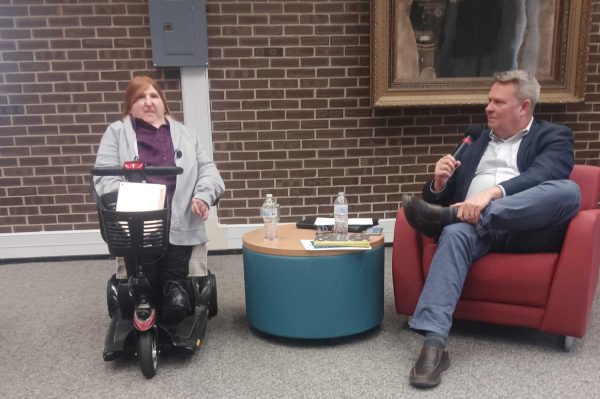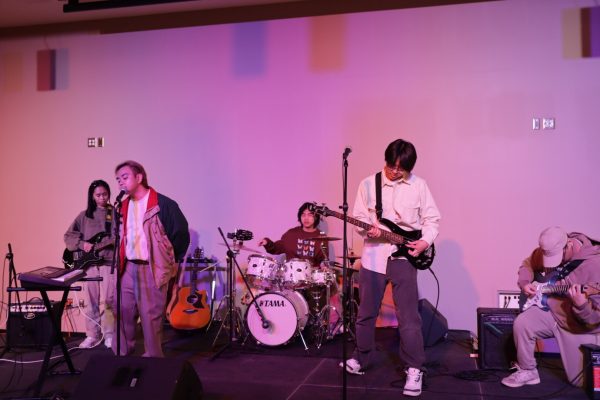PJ Harvey goes from rock to creepy in latest release
October 9, 2007
7 / 10
PJ Harvey belongs with an elite group of musicians.
Like The Beastie Boys and Beck, she’s considered an influential and original artist who has sustained a lengthy career without repeating herself.
But even her hardcore following will be checking their speakers upon the first listen of her latest and seventh album. “White Chalk” is not rough blues and punk guitars – this album is led almost entirely with piano. Instead of Harvey’s unique banshee wail of a voice, she has transformed into a high, wilting tone.
None of this is unheard of for Harvey, but rarely has it been heard so prominently on one of her albums.
The album’s unusual sound makes for a difficult first listen. I was almost ready to give up on one of my favorite artists by the time it was over. But to say this is an experiment gone awry undersells a unique entry in Harvey’s already remarkable catalog.
Returning to the producer Flood, who helped make her critically and commercially successful album, “To Bring You My Love,” as well as albums by the Smashing Pumpkins and U2, “White Chalk” is far and away one of the creepiest and eeriest sounding records of the year.
Harvey’s falsetto voice sounds like it’s coming from a ghostly little girl on “Grow Grow Grow,” asking her mommy to teach her “how to catch someone’s fancy.” Over the reverb-soaked piano, the effect is enjoyably unsettling. It’s the aural equivalent of an old horror movie.
Then, there’s the moment where she croons, “Oh, grandmother, I’m so lonely,” during “To Talk to You.” It sounds as if she’s a ghost from beyond the grave.
The album is not Harvey’s best. While the sonic textures certainly get more interesting the more they’re dug into and replayed, this record is slightly monotonous. Harvey usually hits more emotional tones, but here seems stuck in this gothic mode of thinking.
There are also some days – warm, sunny, carefree days – where this album probably will be far from the top of the CD pile. Anyone who has felt that reverb is the death of pop music should steer away.
But despite this, Harvey creates an interesting and startlingly resonant album. While I appreciate and admire this effort now, it’s very possible that when Halloween comes and goes and we experience our annual week of deathly cold, “White Chalk” will slip itself further under my skin and onto my year-end list of great albums.
The key to fully appreciating this album comes from repeat listens.
“White Chalk” doesn’t amaze so much as it gets under the skin.










